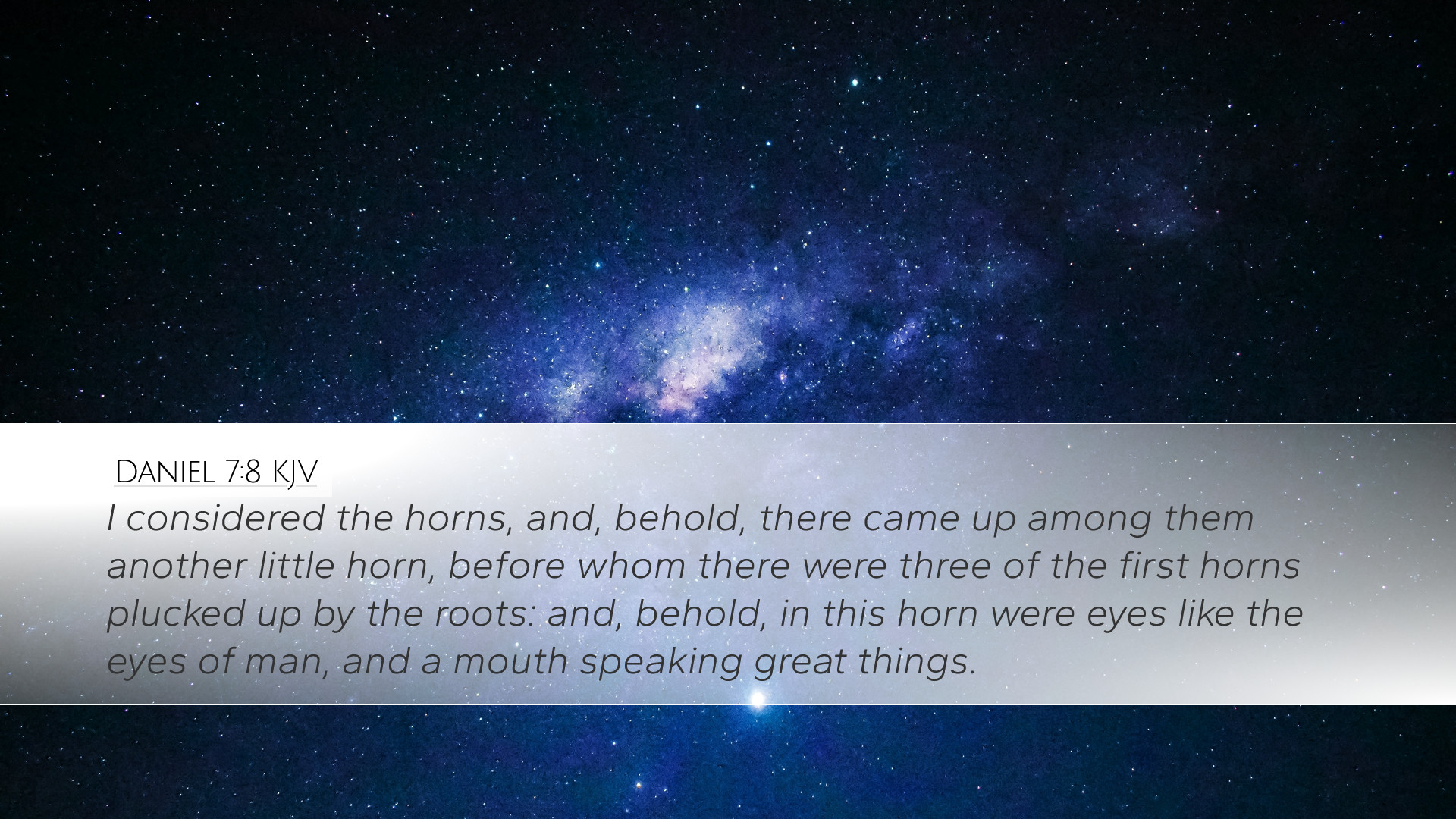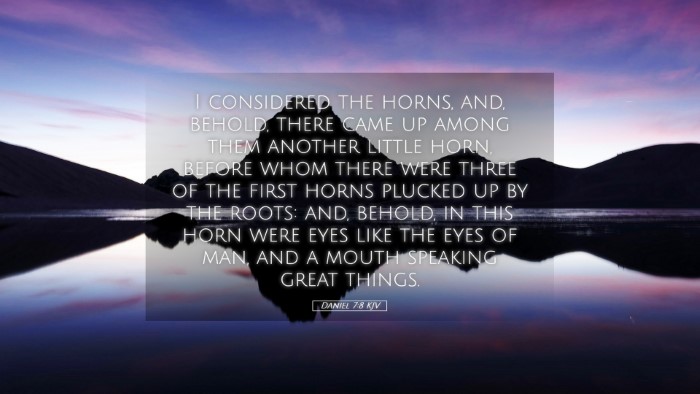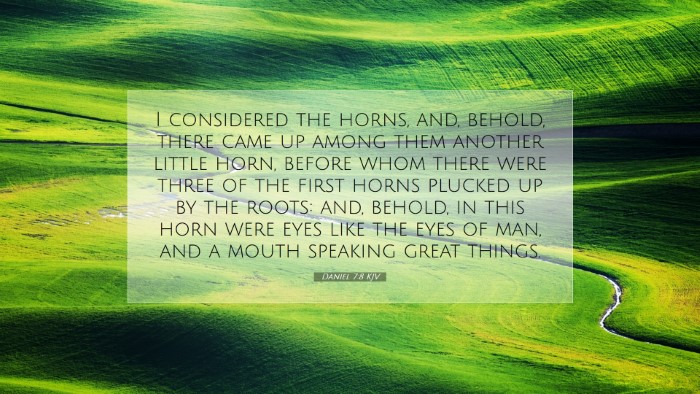Commentary on Daniel 7:8
The verse Daniel 7:8 states:
"I considered the horns; and, behold, there came up among them another little horn, before whom there were three of the first horns plucked up by the roots: and, behold, in this horn were eyes like the eyes of man, and a mouth speaking great things."
This verse is part of a larger prophetic vision experienced by the Prophet Daniel, depicting four beasts that represent four kingdoms. In this specific passage, the focus is on the "little horn," a figure that warrants extensive theological reflection.
Overview of the Kings and Their Succession
Matthew Henry notes that the "horns" symbolize kings or kingdoms, and they emerge from a fourth beast representing the Roman Empire. The "little horn" signifies a notable and distinct entity that rises amongst the ten, showing a gradual but determined ascent to power.
Interpreting the Little Horn
Albert Barnes elucidates that the "little horn" metaphorically represents a power that is both formidable and insidious. The horn’s smallness in size – juxtaposed with the others – does not diminish its significance; rather, it points to its deceptive nature and ability to rise unexpectedly to preeminence.
The Plucking Up of the First Three Horns
Clark asserts that the "three of the first horns plucked up by the roots" symbolize the conquest or overthrow of three previous kingdoms or leaders that allowed this "little horn" to gain dominance. The indication of them being plucked by the roots suggests a complete eradication of that authority and influence, possibly illustrating an aggressive totalitarian approach to consolidating power.
The Symbolism of Eyes and Mouth
The mention of "eyes like the eyes of man" signifies awareness and understanding, suggesting that this little horn will possess a keen insight into human affairs, perhaps signifying a ruler who is both persuasive and astute in his governance.
Moreover, Clarke interprets the "mouth speaking great things" as representative of prideful proclamations and blasphemies that this power will invoke. This characteristic of boastfulness is a recurrent theme in prophetic literature, signifying contempt for God and His sovereign authority.
Implications for Theological Studies
- Historical Context: Understanding the historical context of Daniel's vision is crucial for interpreting its implications for both ancient and modern kingdoms.
- Political Allegory: The concepts of power, authority, and rebellion depicted through the imagery of the little horn serve as an allegory for political dynamics throughout human history.
- Application to Modernity: The characteristics of the little horn can be likened to contemporary figures of power who embody deception, pride, and aggression in leadership.
Conclusion: A Call for Discernment
In conclusion, the insights gathered from the commentaries by Matthew Henry, Albert Barnes, and Adam Clarke provide a profound understanding of Daniel 7:8. It warns of the dangers posed by rising powers and underscores the need for spiritual discernment among God's people.
As students, theologians, and pastors reflect on this passage, they are encouraged to consider the implications of the "little horn" in relation to contemporary governance and ethical leadership within the framework of God’s sovereignty. This will not only enrich their understanding of Scripture but also equip them for navigating the complexities of faith in a politically charged environment.


